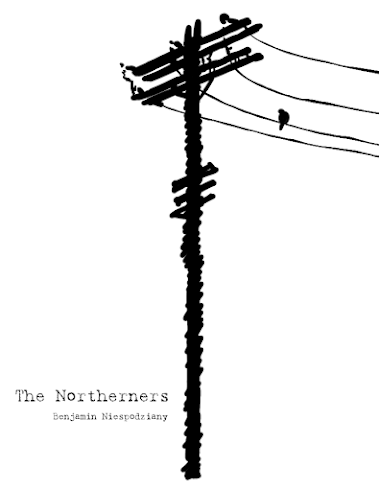folio : short takes on the prose poem
[1] A prose poem is a globe thrown into a square. A pair of misfits sitting willingly at the kids' table. A prose poem is an unstable quartet of professionals pretending like they know what they’re doing. A novel within a toggling box. A god lost at sea. A prose poem is an unknown inside of an unknown. It is where we box ourselves in and thin the outsides. Where we hide from the world, whirligigging as if it this oxymoron was meant to be, as if throwing prose and poetry into the same bowl is normal, standard, average. After all, it crafts a solid concoction. I guess what I'm trying to say is: the prose poem is a delectable soup. My spoon is never satisfied. My spoon can't get enough.
[2] The prose poem does not demand an ending. It does not demand an explanation. It does not need a resolution. It contains none of these things and all of these things. Anything can happen inside of such a boxed-in paragraph. A pair of wings catches fire and turns into a frog. I fell in love with the prose poem because it felt like a contained commercial break, a parable in interlude form. Enough to chew on while eating lunch, while walking around the neighborhood. A world within a wink.
[3] I think the prose poem is a brain, waiting for a paper weight to crush it into ooze.
[4] Or maybe the prose poem is an aquarium full of skulls and glow-in-the-dark coral.
[5] In all seriousness, folks, the prose poem is a tattered coat I wear to my own daily funeral. I'm thankful.
The Shopping Plaza
My mother's car is full of leaf beetles. For each beetle that flies out of my mother’s car, two new beetles fly in. My mother does not acknowledge the leaf beetles. She is late to meet my sister at the shopping plaza. My sister is waiting at the shopping plaza. The shopping plaza is supposed to have silver spatulas and discounted songbirds. My mother drives fast. The leaf beetles line her wig. She has no leaves to give them. My mother's car offers plenty – maple wood baskets, napkins, Spanish ham - but it holds no trees. The leaf beetles ignore everything but my mother's wig. They only want the wig. It's a very expensive wig. It's the only wig she has.
(originally appeared in FENCE)
Origins of Borscht, or: A Liter of Tree for Dr. Sky
inspired by the Bulgarian folk figure Hitar Petar
Dr. Sky walks to buy soup. He has no money to buy soup. He approaches the soup. He takes the last scrap of paper from his pocket and holds it over the soup. The steam will be well-flavored, he says. Flavored like well. Flavored like soup. The paper will relay the bread, the steam will be a shadow's taste. A shadow of a lasting dream. No steam, the soup man sings. Cold soup. Everyone in town laughs as if it's required by law.
The Devil Suggests
The devil is wearing a scarf and we do not know why. The final island is not the final island. The shoeboxes are full of old dolls. I have kept this rug in my car for years. I named her after kerosine drying on a wall. I'm writing a final thesis on puzzle pieces. The sea urchins earning room in my foot. Hollow trees, we apologize for our pouring of sand. The end of the world is a camera capturing the silence. Every time my knee clicks, I know I'll live forever.
(originally appeared in Mercurius Magazine)
Benjamin Niespodziany’s work has appeared in Fence, Fairy Tale Review, Sporklet, Maudlin House, and others. Along with being featured in the Wigleaf Top 50, his writing has been nominated for the Pushcart Prize, Best of the Net, and Best Microfiction. His debut chapbook, The Northerners, was released at the end of 2021.





